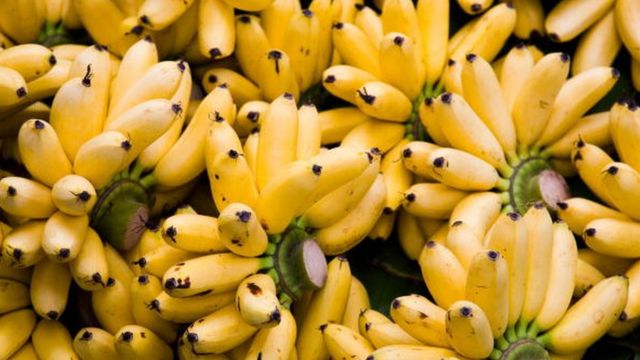
International group launches initiative to save dessert banana
Kampala, Uganda | THE INDEPENDENT | Uganda is home to a rich banana biodiversity and is one of the leading consumers of bananas globally. For hundreds of years, farmers have selected and preserved more than 80 varieties of bananas and plantains all with different social cultural uses, aromas, tastes and economic value.
But this biodiversity is threatened by agribusiness corporations who, says Edward Mukiibi, introduce genetically-engineered banana varieties in the country under the guise of promoting scientific research.
“This is why it’s important for our movement to support the farming communities that are protecting and defending this diversity which underpins our food sovereignty,” says Mukiibi, who is the president of Slow Food International and leader of Slow Food Uganda.
On March 10, the second Slow Food Presidium in the country was launched to protect the Ndaiga Ndiizi Banana; the `apple banana’ locally called Ndiizi Owaffe. The event took place in the remote farming village of Ndaiga, in Sembabule district, central Uganda.
Bananas in Uganda are produced as a staple food for domestic consumption. Different types of bananas play different roles in Ugandan cuisine.
The Ndiizi is a small dessert banana belonging to the AAB genome group. Up until the year 2000 the Ndiizi banana was widely distributed in the central, western and eastern regions of Uganda, before its fortunes were struck by several banana diseases like Black leaf streak, Fusarium wilt, weevils and the banana xanthomonas wilt transmitted by insects attracted to the sweet nectar produced by the plant’s flowers. These diseases have forced local scientists to developing high-yielding and disease-resistant breeds like the Narita and Kabana hybrids.
The new Ndiizi Presidium is being founded in recognition of the fact that the Ndiizi banana variety is at the verge of disappearing. The Ndaiga Ndiizi Banana Presidium’s 43 members belong to the Nkumbi Eyamba farmers’ group.
The Secretary, Christopher Ssenyonjo, expressed his willingness to avoid activities that would lead to further biodiversity loss in their community and that a strong collaboration with Slow Food Uganda would help strengthen local awareness of the importance of preserving biodiversity.
During the event, Presidium farmers officially adopt the Ndiizi banana production protocol which was developed by the farmers in collaboration with the Slow Food Uganda office. The launch expected to bring together over 100 participants of different backgrounds including locals, cooks, partner organisations, banana experts, students and food communities.
The launch was designed to include a number of activities including an informative workshop where participants take part in an educational session on the history of bananas in Uganda, the country’s banana biodiversity and the benefits of conserving it.
The plan was to have a sensory workshop that involves an analytical tasting of different banana varieties. This is because hybridized banana varieties are characterised by poor sensory attributes. This session also was an opportunity to explain the Ndiizi banana in depth with an entertainment backdrop.
School children from the community present entertaining songs and poems aligned with the day’s theme for guests to enjoy and learn.
About Slow Food
Slow Food is a global, grassroots organization, founded in 1989 to prevent the disappearance of local food cultures and traditions, counteract the rise of fast life and combat people’s dwindling interest in the food they eat, where it comes from and how our food choices affect the world around us.
Since its beginnings, Slow Food has grown into a global movement involving millions of people in over 160 countries, working to ensure everyone has access to good, clean and fair food.
Slow Food believes food is tied to many other aspects of life, including culture, politics, agriculture and the environment. Through our food choices we can collectively influence how food is cultivated, produced and distributed, and change the world as a result.
Slow Food was started in Italy by Carlo Petrini, an Italian activist and author, and a group of activists in the 1986 with the initial aim to defend regional traditions, good food, gastronomic pleasure and a slow pace of life.
Petrini first came to prominence in the 1980s for taking part in a campaign against the fast food chain McDonald’s opening near the Spanish Steps in Rome. In 1983, he helped to create and develop the Italian non-profit food and wine association known as Arcigola, according to Wikipedia.
In over two decades of history, the Slow Food movement has evolved to embrace a comprehensive approach to food that recognises the strong connections between plate, planet, people, politics and culture. Today Slow Food represents a global movement involving thousands of projects and millions of people in over 160 countries.
 The Independent Uganda: You get the Truth we Pay the Price
The Independent Uganda: You get the Truth we Pay the Price


